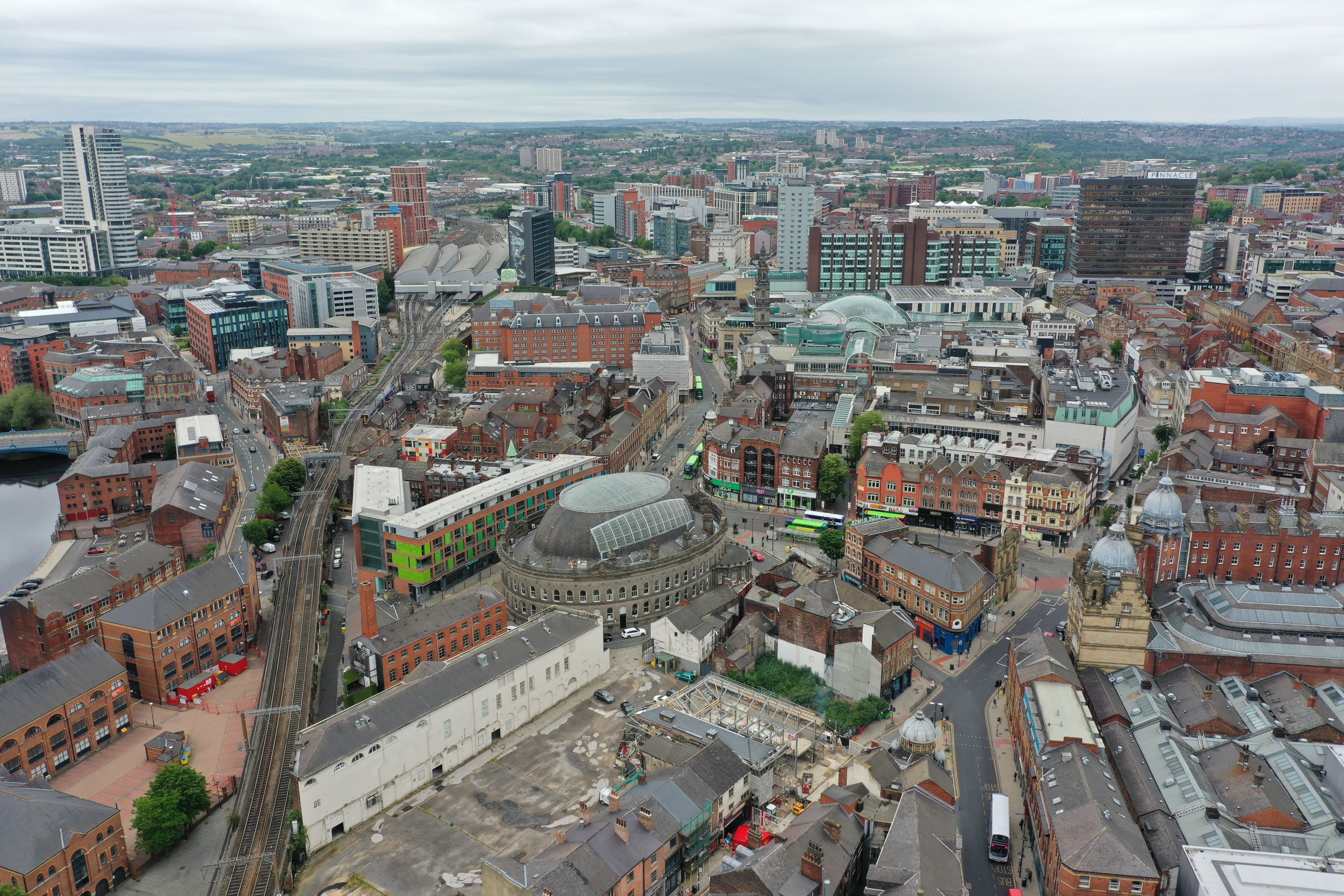Six towns and cities chosen to pilot England’s first clean heating networks
Urban areas will roll out technology that recycles excess heat from sources like data centres or factories to help heat buildings.

Your support helps us to tell the story
From reproductive rights to climate change to Big Tech, The Independent is on the ground when the story is developing. Whether it's investigating the financials of Elon Musk's pro-Trump PAC or producing our latest documentary, 'The A Word', which shines a light on the American women fighting for reproductive rights, we know how important it is to parse out the facts from the messaging.
At such a critical moment in US history, we need reporters on the ground. Your donation allows us to keep sending journalists to speak to both sides of the story.
The Independent is trusted by Americans across the entire political spectrum. And unlike many other quality news outlets, we choose not to lock Americans out of our reporting and analysis with paywalls. We believe quality journalism should be available to everyone, paid for by those who can afford it.
Your support makes all the difference.Six towns and cities have been selected to develop England’s first clean heat network zones, the Government has announced.
The Energy Department (DESNZ) said these urban areas will roll out technology that recycles excess heat from sources like data centres or factories to warm several buildings at once.
The schemes will be set up in Leeds, Plymouth, Bristol, Stockport, Sheffield and two areas of London.
They will receive a share of £5.8 million in Government funding to develop the heating zones, with construction expected to start from 2026.
DESNZ said the projects aim to see more businesses and building owners benefit from low-cost, low-carbon heating as well as create tens of thousands of jobs across engineering, planning, manufacturing and construction.
Minister for energy consumers Miatta Fahnbulleh said: “Heat network zones will play an important part in our mission to deliver clean power for the country, helping us take back control of our energy security.
“Tens of thousands of green jobs will be created across the country, and that’s why we’re investing in developing these fantastic and innovative projects – developing the first zones in cities and towns across England.”
DESNZ said heat network zones use data to identify the best spots and help to plan and build the technology at scale.
They will also require suitable buildings, such as hotels and large offices, to connect when it is cost-effective for them to do so, it added.
Types of buildings that could connect to a network include those that are already communally heated, and large non-domestic buildings over a certain size, such as hospitals, universities, hotels, supermarkets, and office blocks.
Across west London, excess heat from data centres – which would otherwise be wasted – will provide heating in the Old Oak and Park Royal Development.
Meanwhile, the system planned in Leeds will take heat from a nearby glass factory to warm connected buildings.
The pilot comes as part of the Government’s plan to accelerate the delivery of heat networks across England in areas where zones are likely to be designated in the future.
The learnings from these pilots will inform the work to reduce bills, enhance energy security, and achieve net zero by 2050, it said.
Caroline Bragg, chief executive of the Association for Decentralised Energy, said: “We are delighted to see Government maintaining its support for the heat network sector.
“Heat network zones are crucial for a just transition for our communities – putting the UK on the lowest cost pathway to decarbonising our heat, attracting more than £3 of private investment for every £1 of public funding given and creating tens of thousands of local jobs.
“As we begin to deliver zoning at scale, it is crucial that the Government and industry continue to work together to ensure heat networks can truly unleash their potential.”
Ofgem was named as a provisional regulator for communal heat networks after the passing of the Energy Act 2023.
The Government is planning to introduce secondary legislation to set out the start date for Ofgem’s permanent regulation of new and existing heat networks, with plans to also consult on proposals including complaints handling, protections for vulnerable people and fair pricing in due course.
Meanwhile, consumer advocacy bodies – Citizens Advice in England and Wales and Consumer Scotland in Scotland – will provide advisory and advocacy services for heat network consumers.